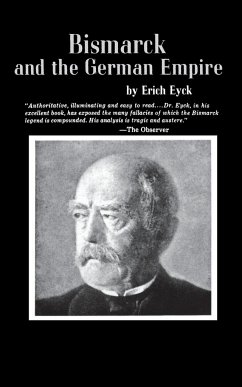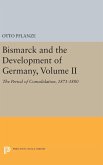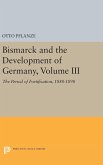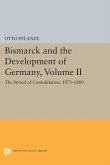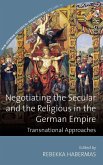For most people Bismarck is the man of "blood and iron"; he coined the phrase himself and he lived up to it. But he was much more; he had an itellectual ascendancy over all the politicians of his day, and his superiority was acknowledged not only by his own people, but by all European statesmen. The unification of Germany, the defeat of Austria, the fall of the Second Empire, the defeat of France, the alliance of the German Empire and the Habsburg Monarchy, the dismemberment of Denmark-these are his most obvious achievements; no less important was the transformation in the national consciousness of the German people, for which Bismarck was also responsible. Dr. Eyck has analyzed not only the personality but also the accomplishments of a statesman whose influence on Europe in the latter half of the nineteenth century was more far-reaching than that of any other man in his time. This edition contains minor corrections and a new foreword by the author's son Frank Eyck, also a nineteenth-century historian, evaluating some of the important publications in the field since the book appeared and illuminating his father's attitude to Bismarck.
Bitte wählen Sie Ihr Anliegen aus.
Rechnungen
Retourenschein anfordern
Bestellstatus
Storno

